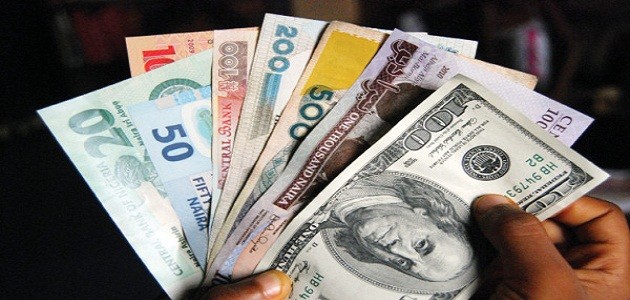The non-deliverable forwards market in London priced the naira at N515 to the dollar in a year’s time while naira futures contracts of the same tenor were quoted at N385.
The forward market differential between one-year naira forwards and futures widened to 130 Naira on Monday, up from 30 Naira in January, as investors raced to hedge risk.
The naira futures one-year contract offered by the central bank was revised upwards on Monday by 15 Naira.
The Naira’s one-year forward price, which gives an indication of where the currency could trade in a year’s time, fell about 11.3% against the dollar.
The Naira, which depends on oil earnings for about 90% of foreign exchange earnings, has depreciated against emerged markets currencies like the American dollar. The development followed the price war between Russia and Saudi Arabia over oil production cuts and poor demand from major markets like China, India.
The Central Bank of Nigeria quoted the naira at N360 to the dollar on Monday, weaker than its former pegged rate of N306, while the rate on the interbank market moved to N380 from N360 previously.
The governor of the apex bank, Godwin Emefiele, last week, stated that the sudden drop in the value of the naira was a price adjustment, not devaluation.
A forward market is an over-the-counter marketplace that sets the price of a financial instrument or asset for future delivery. Forward markets are used for trading a range of instruments, especially at the foreign exchange market.
Naira forwards nine months out also fell more than 11% while shorter maturities were down at least 5%.
The impact of the oil price plunge over the weekend has spread across asset classes in Nigeria, causing investors to widen spreads on the bond market, sell stocks and weaken the naira currency.
Godwin Emefiele, who supports a strong currency, backed by President Muhammadu Buhari, has been burning through its reserve of $35.98 billion as at 20th March 2020, which is now down 16% from a year ago, to prop up the naira.
On the stock market, the main index retreated to 21,700 on Monday, a level last seen in July 2012, after the most liquid banking shares on the exchange fell 9%.

 Health5 days ago
Health5 days ago
 Entertainment6 days ago
Entertainment6 days ago
 Crime5 days ago
Crime5 days ago
 Education7 days ago
Education7 days ago
 Health7 days ago
Health7 days ago
 Comments and Issues6 days ago
Comments and Issues6 days ago
 Football6 days ago
Football6 days ago
 Latest6 days ago
Latest6 days ago

